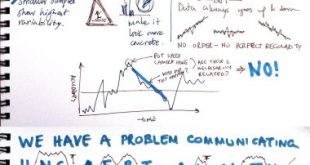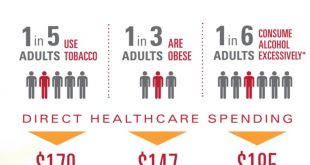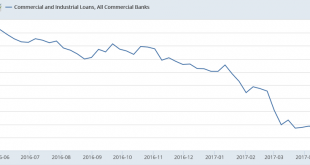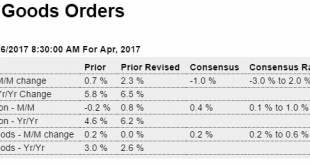Read More »
Trump and the Neocons: doing the unilateralist waltz
from Thomas Palley The neocon factor dramatically changes the interpretation of the Trump administration’s unilateralist international economic policy chatter. Donald Trump’s first one hundred days have revealed his inclination for unilateralism in international relations. That inclination reflects his opportunistic and bullying disposition, and it also fits well with his anti-globalization pose. Trump’s unilateralism has also spawned a dangerous waltz with Washington’s neocon...
Read More »Modern economics — pseudo-science based on FWUTV
from Lars Syll The use of FWUTV — facts with unknown truth values — is, as Paul Romeer noticed in last year’s perhaps most interesting insider critique of mainstream economics, all to often used in macroeconomic modelling. But there are other parts of ‘modern’ economics than New Classical RBC economics that also have succumbed to this questionable practice: Statistical significance is not the same as real-world significance — all it offers is an indication of whether you’re seeing an...
Read More »Trump and the Neocons: Doing the Unilateralist Waltz
The neocon factor dramatically changes the interpretation of the Trump administration’s unilateralist international economic policy chatter. Donald Trump’s first one hundred days have revealed his inclination for unilateralism in international relations. That inclination reflects his opportunistic and bullying disposition, and it also fits well with his anti-globalization pose. Trump’s unilateralism has also spawned a dangerous waltz with [...]
Read More »The 10 most viewed RWER Blog posts in 2016
Poll Results: Top 10 economics books of the last 100 years Summary of the Great Transformation by Polanyi Asad Zaman Reflections on the “Inside Job” Peter Radford The tiny little problem with Chicago economics Lars Syll Money and the myth of barter David Ruccio What is Post Keynesian Economics? Lars Syll The seven countries most vulnerable to a debt crisis Steve Keen The 15 largest arms exporters per capita Joseph Buzaglo Re-thinking the definition of...
Read More »Healthcare Costs, Externalities, and Changing Social Norms
One of the topics I’ve railed about many times during the decade and change in which I’ve been blogging is that society would be much better off if we forced people to pay the cost of negative externalities they impose on other people through their behavior. An obvious example would be making polluters pay for the cost that the pollution they emit inflicts on everyone else. But it turns out there are a lot of these behavioral externalities in healthcare. For...
Read More »Credit check
If these numbers don’t turn up q2 gdp could be a lot worse than q1:
Read More »GDP, Durable goods, Profits
Real consumer spending revised up a bit, and not to forget that includes health care premiums, and q2 now looking a lot worse than previously expected: Highlights First-quarter GDP gets a small but much needed upgrade, now at a 1.2 percent rate of annualized growth which is nearly double the advance estimate. The gain is centered where it is best, in consumer spending where the rate did double to 0.6 percent. This is still slow but is an improvement with durable goods, at...
Read More »Moving to Opportunity: Katz, Ludwig, Chetty and Hendren — discussant Bruce Springsteen
This very important paper “Moving to Opportunity” is well summarized by the discussant. Baby this town rips the bones from your back It’s a death trap, it’s a suicide rap We gotta get [them] out while [they]‘re young `Cause tramps like us, baby we were born to run [regressions] As noted by the discussant, the authors find that the benefits for young children of moving out of high poverty areas are very large. In contrast moving in ones teens helps girls but...
Read More »Philly Fed State index, Pending legislation, North Korea, Basic income
As previously discussed, seems to me it’s unlikely any of the trumped up expectations willcome to pass: McConnell: ‘I don’t know how we get to 50’ votes on ObamaCare repeal (The Hill) Senate Majority Leader Mitch McConnell says he doesn’t know how Senate Republicans are going to get enough votes to pass an ObamaCare replacement bill. “I don’t know how we get to 50 [votes] at the moment. But that’s the goal,” McConnell told Reuters in an interview Wednesday. McConnell...
Read More » Heterodox
Heterodox





